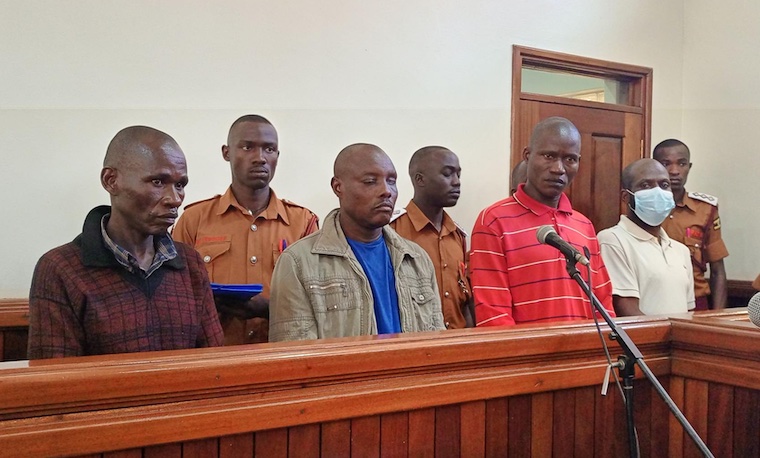The Director of Public Prosecutions (DPP) has disclosed critical pieces of evidence intended to prosecute four individuals accused of murdering senior principal state attorney Joan Kagezi Namazzi nearly a decade ago.
Kagezi was fatally shot on March 30, 2015, in Kiwatule, a Kampala suburb. The accused are Daniel Kisekka Kiwanuka, a farmer and charcoal burner from Kayunga district; John Kibuuka, also known as Musa, an inmate at Kigo prison; Nasur Abdallah Mugonole, an inmate at Kitalya Mini Max Prison; and John Masajjage, alias Mubiru Brian or Badru, also incarcerated at Kitalya Mini Max Prison.
The case was brought before International Criminal Division (ICD) judge Alice Komuhangi Khaukha on Monday for further pretrial proceedings. Assistant DPP Thomas Jatiko and chief state attorney Lillian Omara told the court that two volumes of evidence had been disclosed to the defense team.
They highlighted that the remaining disclosure included digital evidence stored on a flash disk, which would also be presented to the court before the day’s end. Jatiko noted that physical exhibits, such as scene-of-crime reconstruction videos, identification parade footage, and recordings of one of the accused, Kisekka, leading investigators to a shrine linked to the case, were ready for inspection.
These exhibits are part of 97 pieces of evidence prepared for the trial, including bullet cartridges, bullet heads, three fragments, two smartphones, and three Tecno feature phones reportedly used in the crime. After partially receiving the disclosed materials, defense lawyer Henry Kunya described the evidence as well-organized.
He and co-counsel Elizabeth Nampola, who were recently appointed on a state brief after the previous lawyers withdrew, confirmed readiness to proceed with the case. The court adjourned proceedings to today December 10 for further hearings.
Investigators allege that the accused sought help from a witch doctor to perform rituals intended to delay proceedings and evade justice. These rituals reportedly occurred after the murder, along with other acts to protect themselves from detection.
Postmortem reports confirmed Kagezi died from gunshot wounds, with forensic analysis conducted on bullet cartridges and blood swabs collected at the scene. Evidence implicates some of the accused, including confessions from Kibuuka and Kisekka, who detailed their roles in the crime. Records show Kibuuka provided the firearms, and each participant was paid Shs 500,000.
Masajjage reportedly confessed to organizing the murder from the Democratic Republic of Congo (DRC) and claimed financial incentives motivated the crime. He also linked himself to other murders and armed robberies committed after Kagezi’s death.
The prosecution alleges the murder aimed to intimidate the public or influence government decisions for political, religious, or economic gains. The case underscores the indiscriminate disregard for public safety and property. The trial is a significant step toward justice for the late Joan Kagezi.

